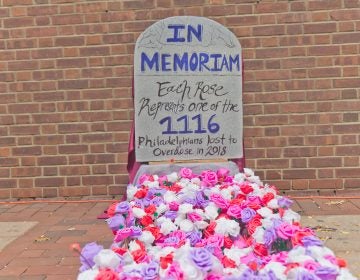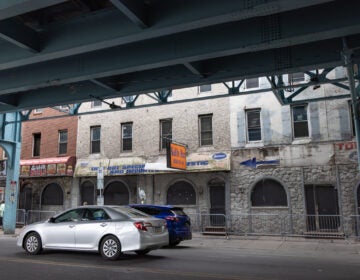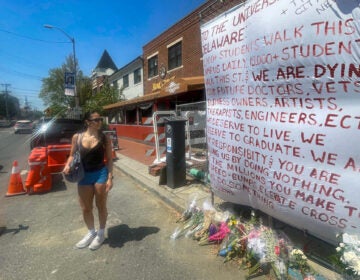From grief to action: atTAcK addiction’s 13th annual candlelight vigil brings resources and support efforts to the Newark community
atTAcK addiction offered support and resources to incoming students at the University of Delaware in hopes of preventing overdose deaths.
Listen 1:20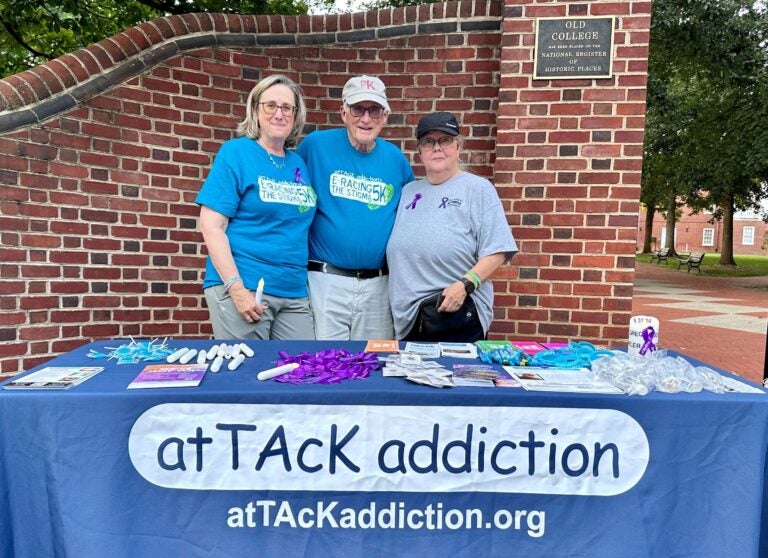
Don Keister, standing in the middle, is joined by his wife to the left and Elizabeth Perkins further to the right as they table at the Candlelight Vigil, all to shed light on International Overdose Awareness Day. (Johnny Perez-Gonzalez/WHYY)
From Philly and the Pa. suburbs to South Jersey and Delaware, what would you like WHYY News to cover? Let us know!
In 2023, the Centers for Disease Control and Prevention reported approximately 107,543 drug overdose deaths across the United States. Delaware recorded 558 of those tragic losses.
In response, Delaware-based atTAcK Addiction is intensifying its efforts to provide crucial resources and information to those in need, working to combat the state’s opioid crisis and save lives.
The atTAcK addiction nonprofit, named in memory of Tyler Armstrong Keister, was founded in 2013, driven by the shared grief of those who had experienced losses through overdoses.
As International Overdose Awareness Day approaches on August 31, supporters of atTAcK Addiction held the 13th annual candlelight vigil in Newark in front of Old College Hall at the University of Delaware.
Elizabeth Perkins has attended every vigil since her son died of a heroin overdose in 2011 while he was a UD student.
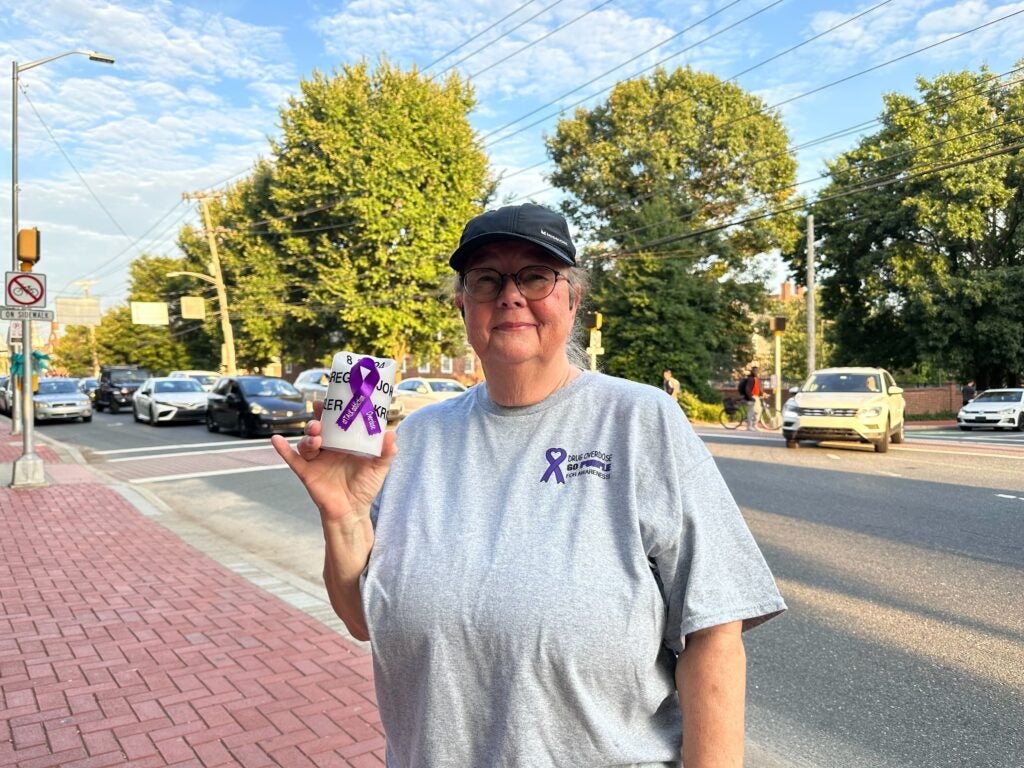
“Every year since, we’ve been on this corner. Usually on the 31st because the 31st is technically International Overdose Awareness Day, but we come in the middle of the week now because we get most of the students when they’re first here,” she said, noting that this week marks the start of the academic school year for the college. “Overdose is still unfortunately a huge problem, so we’re trying to just educate the students.”
At the candlelight vigil, Perkins and the founders of the nonprofit, Don and Jeanne Keister, set up their table on Main Street and provided students with essential information on accessing addiction treatment, mental health services, and Narcan.
They also offered information about Delaware’s 911 Good Samaritan law. First enacted in 2013, the law gives legal immunity to people who seek medical assistance when someone is overdosing. Perkins said it’s been essential in saving lives by allowing individuals to seek help without the fear of arrest or accountability. The law is named after John Perkins and Kristen Jackson, who died of a prescription drug overdose in January 2012 when her friends were afraid to call 911 to get her help.
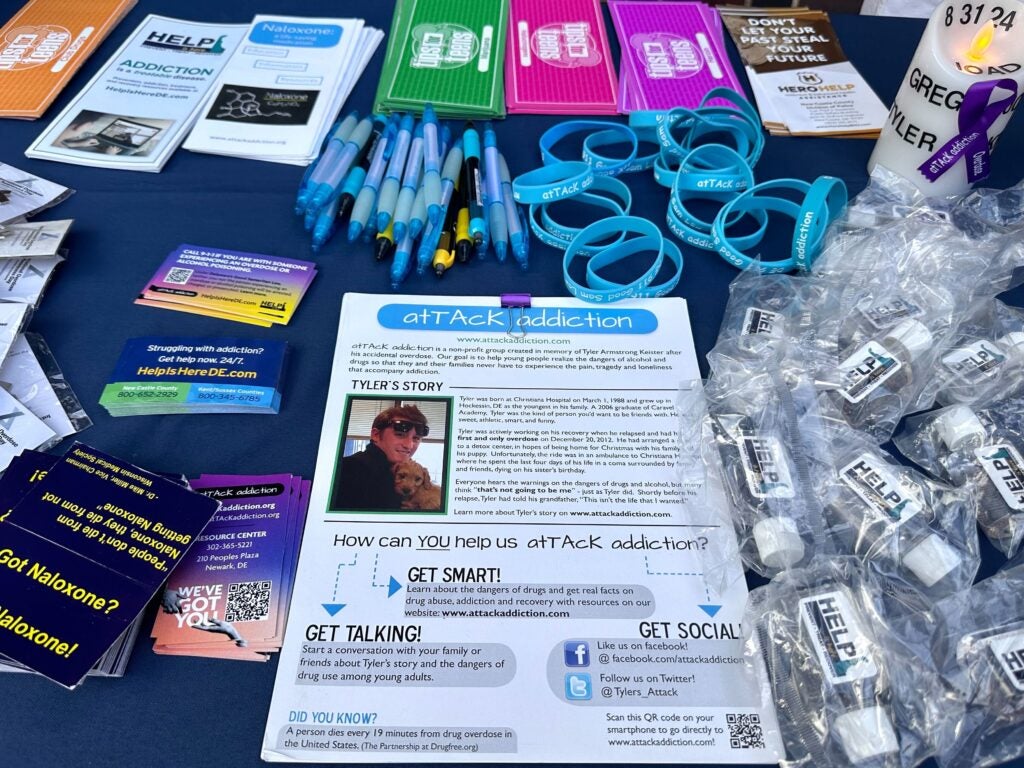
“We found out that a lot of out-of-state students don’t know that Delaware has a Good Samaritan law,” she explained, referring to the law named in honor of her son. “The point of a Good Samaritan law or 911 law is that if you’re using with someone and they have the symptoms of an overdose, you can call 911 and get an ambulance, get help, to have a person come, hopefully have Narcan so that they can revive the person and you will not be arrested.”
After Don Keister and his wife lost their son to an opioid overdose, they chose to help others in similar situations. They built upon Perkins’ work, enhancing and expanding the project by establishing their organization.
“She had been doing this for two years before we even became acquainted with her,” he said. Since then, they have been growing their efforts together.
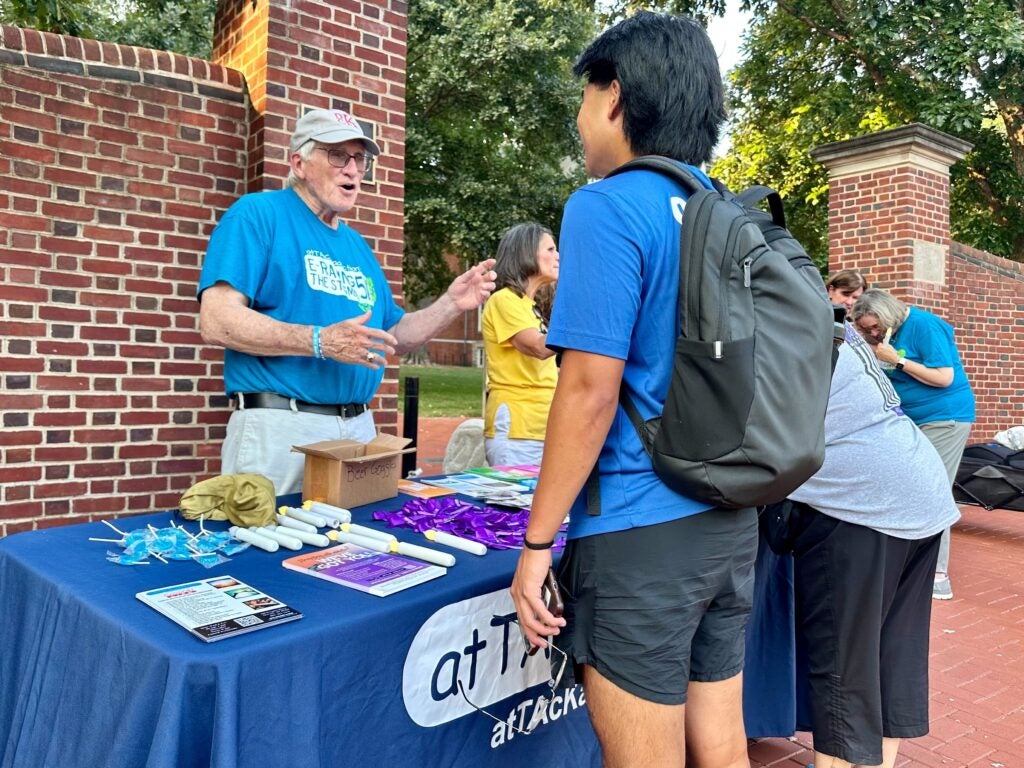
“We also have information on the University of Delaware buses, we have a resource center located in Peoples Plaza. We’ve worked on at least 20 laws, nine of them we were the main person in charge of them. Most recently was the impact fee that would charge makers of drugs and that money all went to helping people.”
Their next step is opening a fifth recovery home in Smyrna within the next couple of weeks, joining the two already established in Sussex County and two in New Castle County.

Get daily updates from WHYY News!
WHYY is your source for fact-based, in-depth journalism and information. As a nonprofit organization, we rely on financial support from readers like you. Please give today.



